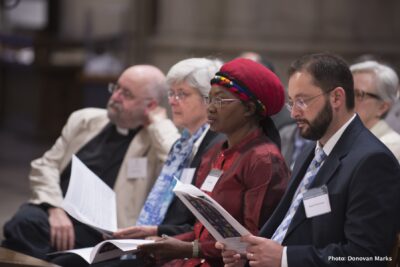a. The Francis Factor Five Years On: Taking Stock, Looking Forward
We call for papers that will explore the papacy of Pope Francis as he nears the fifth anniversary of his election as pontiff. We invite submissions of papers of 20 mins length from multiple disciplinary angles, including but not limited to theological, historical, political, social, media, liturgical, economic, etc. etc. What have been the most significant achievements of the papacy so far? What have been the most important changes he has introduced across the church? What are the areas where there is work to do and where challenges remain? What features best epitomize his ecclesiological vision for the church and its mission? What have been his most astute appointments both in curial terms and in terms of the global episcopate? We are especially grateful to receive submissions exploring the ecclesiological, ecumenical and interreligious dialogue aspects of the pontificate as well as papers that compare Francis’ papacy with other historical periods of church history. (NB there are TWO EI sessions on this topic).
b. The Future of Ecumenism: Shaping Method and Practice for Today’s Times
The perceived ‘golden age’ of ecumenism in the mid-late twentieth century was marked by an increasing bureaucratization of ecumenical engagement, dialogue and practice, helping to contribute to the decline of ecumenical endeavor as many organizations and entities engaged in dialogue slipped into a form of ‘industrial-scale’ ecumenism. The old-style approaches taken by bi-lateral and multi-lateral dialogues have reaped fewer and fewer results in recent times and have frequently been peopled by the same professional class of ecumenists, speaking about the same old issues and employing the same old methods. What new ways and means for advancing and promoting ecumenism for today’s world are emerging? What new methods and forms of ecumenical engagement and practice might be developed in the near future? What are the reasons for the decline in the effectiveness of the old-style forms of ecumenical method and practice? What lessons can be learned from other forms of dialogue both throughout history and in differing forms beyond the ecumenical movement? Which institutions and organizations are best suited and best equipped toward being able to help facilitate the advancement of ecumenism today and into the future? What will tomorrow’s forms of dialogue look like and who can and should be involved in them? How can official church bodies and ecumenical organizations alike be persuaded to bring in differing voices and to listen to those voices? To what ends should ecumenical dialogue be pursued today? (NB there are TWO EI sessions on this topic, one in collaboration with the Volos Academy).
c. Resisting the Politics of Exclusion – Expanding Dialogical Horizons
A roundtable conversation about promoting Religious Pluralism and facilitating Ecumenical and Interreligious Dialogue for the 21st Century. Our world has never been in greater need of dialogue both within and between faith communities and of initiatives to promote religious literacy and religious pluralism. What are some examples of successful ventures toward such ends in recent times and what opportunities might there be for new types of initiatives along these lines in the future? This panel explores the origins and outcomes of a series of initiatives that have been developed at Georgetown University, Washington, DC, in recent years to promote Ecumenical and Interreligious Dialogue, and particularly religious pluralism. It will take the form of a roundtable discussion – each speaker will talk for 15 minutes initially, and then the conversation will be opened up to explore questions and interaction between the panelists and with the audience. (NB – this is a panel session so there is no open call for this topic).
Details to propose and register are here:

